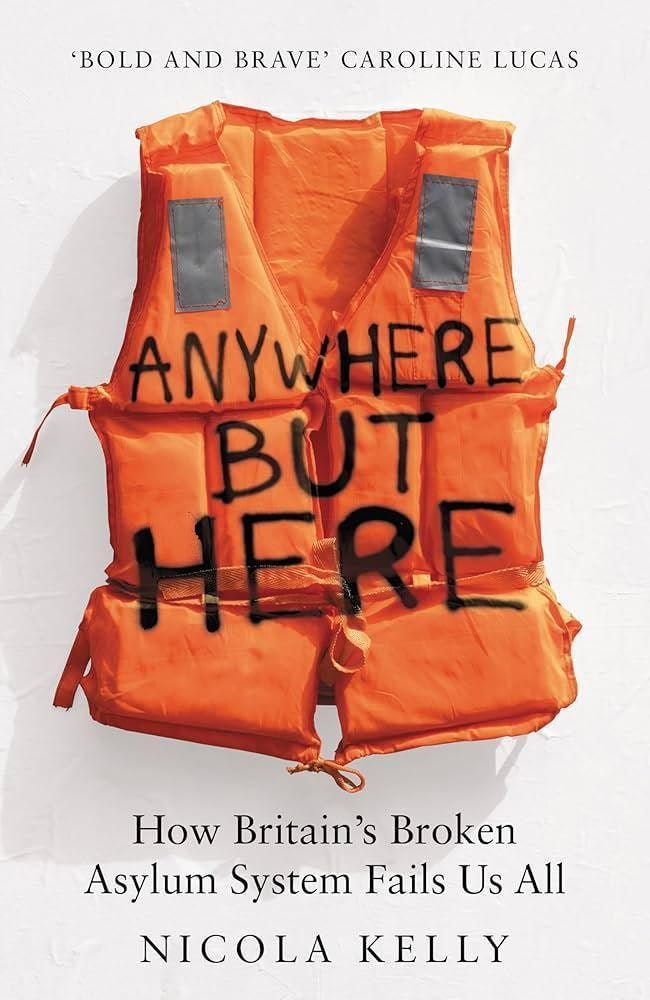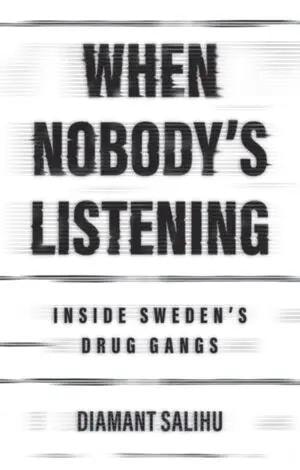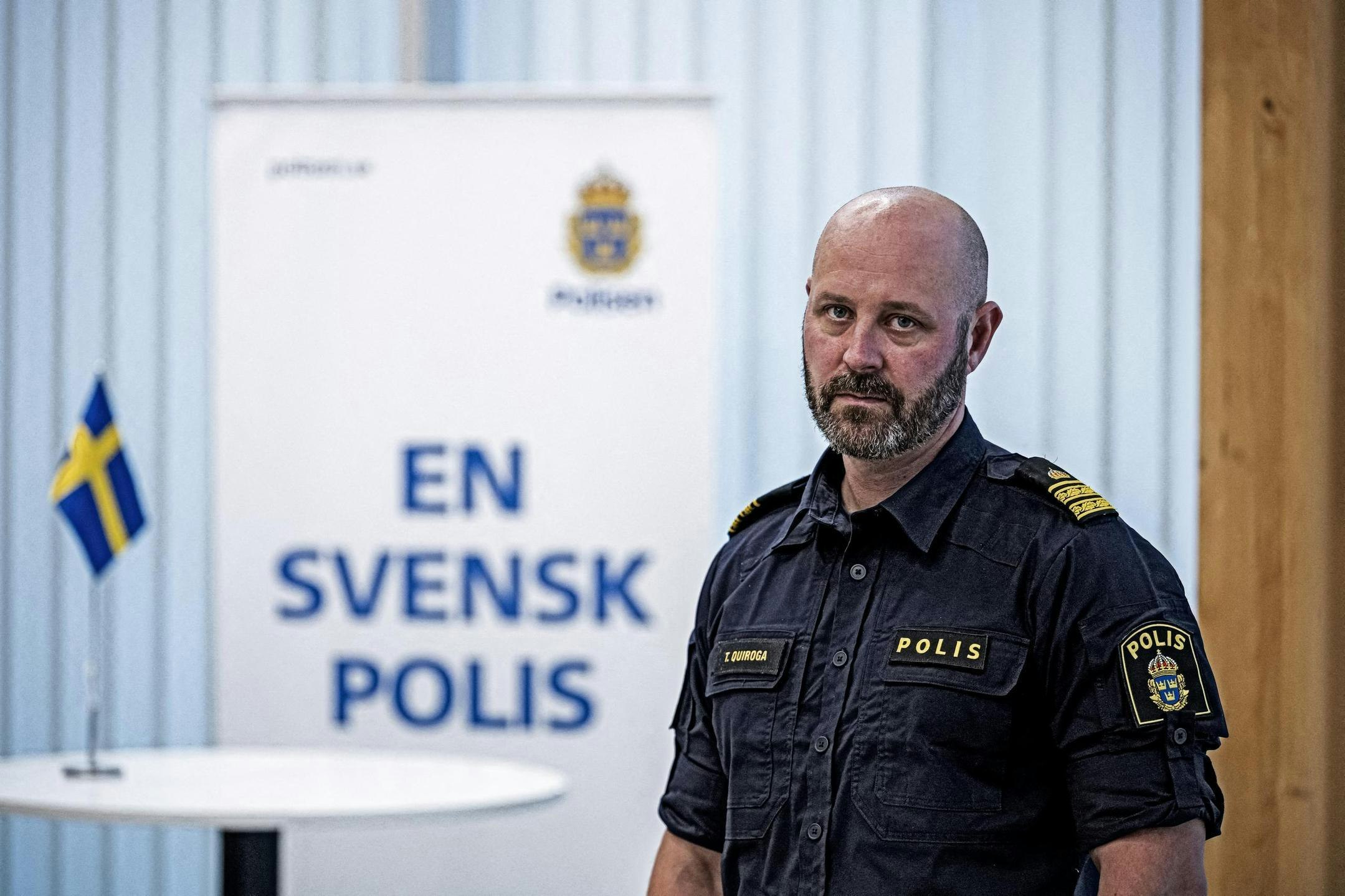This article is taken from the May 2025 issue of The Critic. To get the full magazine why not subscribe? Right now we’re offering five issues for just £10.
Those who proclaim Diversity™ to be our strength — our greatest strength — possess a superhuman skill for overlooking the consequences of mass migration. The contempt an increasing number of working-class communities have for third-world immigrants arriving into Europe remains a complete, racist mystery to much of the political and media establishment, including the award-winning journalist and former Home Office press officer, Nicola Kelly.

In her first book, Anywhere But Here, Kelly digs into the uneasy topic of the small-boat crisis, a crisis she claims to be “manufactured” with “seeds of division sown for political gain”. She “explores the asylum process through the eyes of those who arrived through that route”, directing her focus upon “the complex, notoriously hostile” system.
I had high hopes that in pronouncing “how Britain’s broken asylum system fails us all”, Kelly also intended to examine the negative impact of mass immigration, especially on working-class and rural communities. But “this book is not about policy, politics or politicking; it’s about people.” So I, in kind, resolved to leave my biases behind and be guided on her journey.
What a gullible fool I am! Kelly possesses a sneer to rival that of Lady Catherine de Bourgh. She is unable to make it even through her introductory pages without invoking that omnipresent devil, the “far right”. This is not a label to which I object when sensibly employed. But one cannot describe Suella Braverman as “adopting the language of neo-fascists” and expect to be received as a person who is serious about the issue.
At first I thought Kelly, like a great number of successful metropolitan socialites, was suffering from a “personal incredulity fallacy”. She comes across as incredulous of other people’s personal stories when they do not match her own experiences. She construes those who express fears about immigrants being “rapists” and “terrorists” as either hysterical or stupid, as if crime statistics from the Crown Prosecution Service do not do justice to widespread concerns.
In 2022 Britain’s non-white population was estimated at around 19 per cent, and yet this demographic constituted half of all rape prosecutions. The “Grooming Gang Scandal” has further revealed that more than 75 per cent of “sexual offences against children targeted for their vulnerability” are perpetuated by “Asians”, mostly Pakistani men. Asians constitute a mere 7.5 per cent of the population. Expecting there to be a rapist amongst a group of unvetted Pakistani migrants probably is not silly; it may even be quite sensible.
As for terrorism, MI5 reported last year that 75 per of counter-terrorism efforts in the UK are focused on Islamist extremism. Given that 6.5 per cent of people living in Britain are Muslims, one could say that this demographic is a touch over-represented.
Sweden, like Britain, has discovered that not all immigrants are grateful or benevolent. This polite, unassuming Scandinavian country has long been one of the safest nations not only in Europe but the entire world. Yet, over the last decade Sweden has slipped down the world rankings, registering lower for safety on the Global Peace Index than Oman, Qatar and Kuwait. With more “shooting deaths” per capita than any other country in Europe, what is the reason behind Sweden’s plummeting levels of safety? In a word: immigration.

Drug Gangs, Diamant Salihu, trans. by Jan Salomonsson (Polity, £25)
Diamant Salihu’s When Nobody’s Listening “lifts the veil on a shadowy underworld … responsible for some of today’s most violent crimes”. Since 2015, Sweden has experienced a mass influx of gang warfare. This “ultra-violence” is fuelled by a flourishing drug economy which results in almost daily drive-by shootings and bombings on the streets of cities like Malmö, Stockholm and Gothenburg.
Drug barons such as “Hamid”, “The Boxer”, The Kurdish Fox” and their henchmen originate from the Middle East, granted asylum during the “Refugee Crisis”, or were born in Sweden to parents from Islamic nations such as Syria, Iraq and Somalia.
Since 2015, Sweden has accepted almost a million legal migrants. The foreign-born population has doubled to 20 per cent in ten years. Where once the largest immigrant cohorts came from Finland and Poland, they now originate from Syria and Iraq.
Salihu reconstructs the tapestry of hundreds of interweaving lives through the witness statements of Interpol officers and criminals alike. He describes how children as young as 12 — Swedish boys from disadvantaged neighbourhoods and second-generation immigrants — are groomed via Signal chats to exact the blood feuds between drug “kings” who meanwhile avoid prosecution and enjoy life in Spain, Turkey and Dubai. Swedish lawyers, entrusted to uphold the letter of the law, teach dealers how to avoid taxation and long prison sentences in return for hefty handouts.
Entrepreneurial but disenfranchised Swedish teens turn to drug dealing in an attempt to build a better life for themselves in Europe’s disintegrating economy. A social worker employed to steer these youths away from a life of crime sees no hypocrisy in her own recreational drug use. A wife is shot through the head with her newborn baby still in her arms when vigilantes fail to hit her drug-dealing husband.
Salihu tells a story not of heroes and villains but of the brave and the cowardly, where no one has an unlimited wellspring of either trait.
Such unflattering details are wholly absent from Nicola Kelly’s UK account. In what can only be described as a heroic feat, she is able to find and interview only those migrants who are dispossessed, talented and truly aspirational. There is Arian, the “Iranian-Kurdish aerospace engineer”, and Shadi the “charismatic telecommunications engineer”. But the absence of sin in Kelly’s protagonists in fact makes them (contrary to her ambitions) rather dubious figures, intangible on the page and with no pulse.
Yet the evidence of less savoury characters arriving on Britain’s shores radiates from the book in small details. In describing the often squalid conditions at the preliminary migrant processing camps in Dover, Kelly reveals how some migrants “sleep on flattened cardboard boxes or rows of airport chairs” because their sleeping mat was stolen, without explaining who might have done so.
Migrants recount to her how they have “no choice” but to make the illegal crossing of the English Channel, despite officials in France laying on free coaches to transport migrants from the camps in Calais and Dunkirk to a centre where they can apply for asylum in France.
Afghans are the most common asylum claimant, paying people-smugglers between 5,000 and 10,000 US dollars to transport them across Europe. The average annual income in Afghanistan is $369, so to afford a single trip, an Afghan would have to save up to 30 years to pay off a smuggler. That would be like an English person paying up to a million pounds to be smuggled into, say, Turkey. Needless to say, such people can buy a boat, plane or train ticket for much less — unless they have a good reason to avoid passport control.

It is not that Kelly has failed to notice these contradictions: she is an award-winning journalist and proficient in several languages. It can only be that she has failed to include the more unbecoming details about some of the people she meets. Why? Unlike Kelly, Salihu acknowledges that the ringleaders of these drug gangs, along with a great number of the youth coaxed into crime, are immigrants to Europe. But like Kelly and the lawyers, law enforcement officers and politicians he interviews, Salihu offers no thoughts on immigration policy, either as a cause or a remedy to the problem.
The most pressing issue these books expose is the reluctance of those in positions of power and public influence to confront more than just the symptoms of the problem. There seems to be an unspoken perception that because the native population also commits these crimes, it is impossible to identify offending patterns.
Instead, one must pretend that the chance of an individual turning to crime is entirely random — that a perpetrator is somehow inflicted with bad luck.
This pretence is fuelled by the erroneous supposition that it is racist to single out “groups” who are disproportionately responsible for certain types of crime and disorder and that such observations are racist and cruel: asylum seekers, above all, are victims of circumstance. This is what Kelly would have her audience believe. But it is not a human right to live in a foreign country of a different culture and ethnicity.
Salihu’s account of a troubled Europe is down to earth because it acknowledges that sensitivity to the criminal so often means cruelty to the innocent. In such difficult circumstances, what really counts is our reaction: it is not Salihu but the characters in his book — both natives and immigrants — who ask, in the face of our own squeamishness, “How does Europe regain control?”







